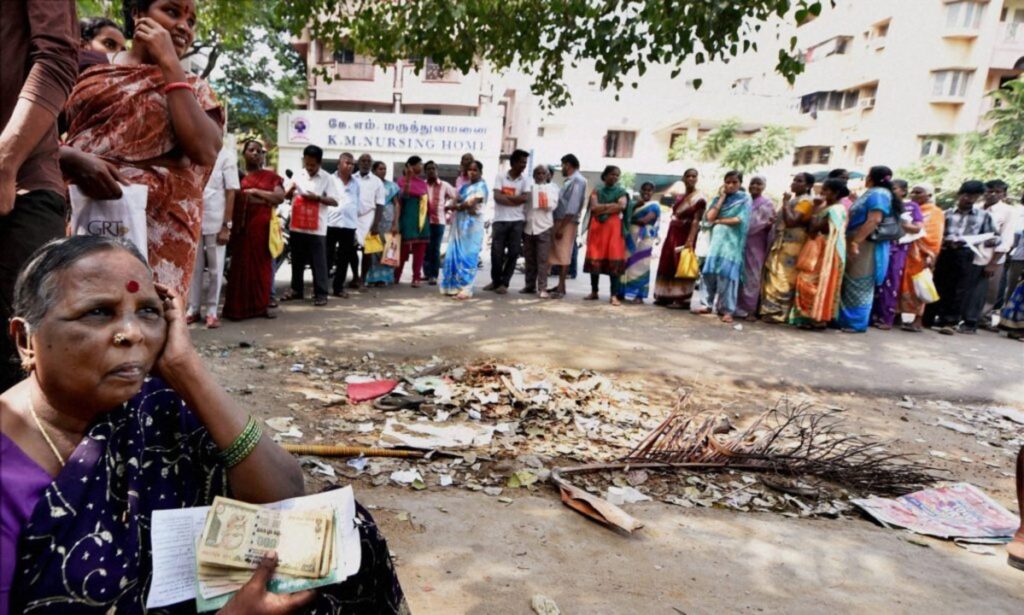
There are events, and then there are events that get etched in your memory forever.
Do you remember what you were doing when 9/11 happened? Or when the 26/11 attacks happened? One such momentous event took place on the eighth of November, 2016, or 8/11.
We first got the news via a Whatsapp message from my sister. I remember telling her not to believe any damn thing that floats by on Whatsapp. How ridiculous – how can such large volumes of currency be withdrawn from circulation with just a few hours notice? Turn on the TV, she said – your Prime Minister is announcing this right now. We were driving, so we googled instead. This was the first shock of the evening. I remember feeling a little disoriented and stopped driving for a while. We didn’t have too many banned notes with us anyway (since most of our transactions were card or digital already), but we anticipated cash and essential good shortages. We turned around to locate a petrol pump – one of the few places that were temporarily exempt from the ban – and had to wait for at least four hours to get the tank filled – everybody else had the same idea.
While waiting, I logged on to Twitter for the first time in three years just to see what the public opinion was like. Then came the second shock – most of the commentary from celebrities, business leaders and privileged citizens was laudatory and congratulated the Prime Minister for this ignominious decision. “Bold” they said. “Surgical strike” they chorused.
I didn’t get it at that time – I still haven’t understood either the decision or the stupidity of those who supported it. The so-called demonetization failed on all possible counts, but succeeded in driving informal and low-income businesses and households to penury. It killed in excess of a hundred Indian citizens who were forced to wait in queues to get their own money. India’s GDP growth has tapered to 5.7%, the lowest in a few years. The effect of the edict on the informal economy has been devastating, but hidden from most pink papers. I personally tracked some of the people I talked to last year during the weeks after demonetization: the small provision shop near a slum has permanently closed; no one knows where the family is. The family of house painters continue to be in conversation with me, hoping that I will redirect some business their way. They never got the money they were owed, and the future looks bleak. The sanitary shop and the Gujarati merchant have more or less recovered, but continue to do business at 80% lesser volumes than last year. Of course, all this is anecdotal, but enough for me to come to my own conclusions.
And yet, the predominant public opinion continues to be cautious in calling out the foolhardiness of the decision. It’s like we’ve lost our voice or our capacity for critical expression. It’s true that we’re relatively elite and have enough wealth to weather through such shocks. It’s the others – those who die quietly in a queue, who are denied their rations, who get blamed for losing their jobs because they did not get the opportunity to re-skill themselves – who should matter most to the government, somehow don’t matter at all to us.
One year later, that’s what bothers me.
Views are my own, not that of my employer.

Leave a Reply